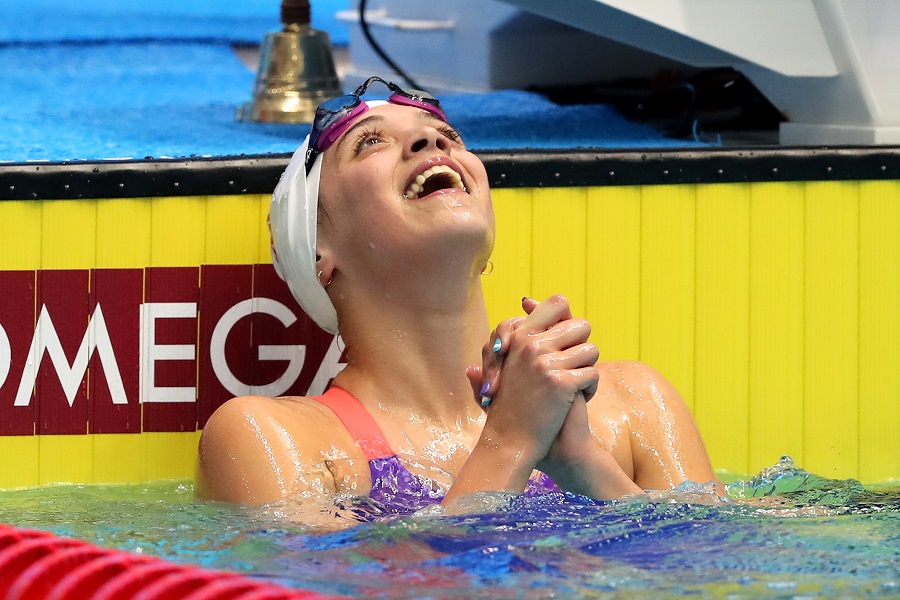This week marks two months of quarantine due to the coronavirus pandemic for the South American nation. During this time, national teamers who were preparing to partake in the South American Championship in Buenos Aires late March, have been unable to make a splash due to the fact that swimming pools have not been made available for high-performance purposes.
A number of weeks ago, the Argentinian Confederation of Water Sports (CADDA) already proposed a protocol that would allow for the reopening of Olympic swimming pools with a limited density of athletes. Only elite swimmers would be permitted while meeting all the necessary health precautions. However, Argentinian sports political authorities continue to study the different scenarios and do not give in to the current general restriction that is in place.
“There is no specific date for the return of any sport. We are going to begin working on protocols. We are thinking of allowing 5 or 6 people to train without even sharing a locker room,” announced Argentina’s Tourism and Sports Minister Matias Lammens a week ago during a radio interview with local news agency Télam.
In the last hours, the Argentinian Olympic Committee (COA) and the National Entity for High-Performance in Sports (Enard), which finances part of the sports world’s logistics in the country, promised to mediate before the Ministry of Health in order to grant a special training permit to athletes who have already qualified for Tokyo 2020.
The first Argentine swimmer to earn an Olympic berth was Delfina Pignatiello.
“For us, going to the pool is less dangerous than going to the supermarket,” the 3-time Pan American champion explained. Pignatiello is a resident of Buenos Aires, where 73% of those infected by COVID-19 nationwide are located.
“Unfortunately we are lumped together with anyone else headed to a swimming pool, and we are elite athletes who need to train for the Olympics. Hopefully, we can be taken into account as they hopefully approve this, because in swimming it is impossible to train without being in the water for so long. ”
For Pignatiello, South American record holder in the 800 and 1500-meter freestyle, the disadvantage with the rest of the athletes who mostly continued swimming during this time could harm her towards the great goal that had been set for Tokyo 2020 – her first Olympics.
The other two Argentinian swimmers who have qualified for the Olympic event live different realities, although they were also affected by the confinement: Santiago Grassi, who has been able to swim in a pool in Auburn, Ala., and Julia Sebastian, who is currently in search of an approved swimming pool in Belo Horizonte, Brazil.
With the uncertainty affecting those who already qualified for Tokyo, Argentine swimmers who still need to meet the qualifying standards for the Olympics are witnessing how the trip to Japan escaped them.
Federico Grabich, a two-time Olympian and world medalist in 2015, has also overcome 60 days without swimming in Rosario, another of the greater Argentine regions, where coronavirus cases are much more isolated.
“I am trying to get a permit from the provincial government (in Santa Fe) so that they allow us to train, as a priority group within the sport, eyeing a possible berth for Tokyo,” Grabich hopes following an unprecedented interruption to his career.
“Two months is an abyss, you lose all the tact that you have been accumulating. Contact with water ten times a week is a lot of physical work that is not replaced by a gym. There are muscles that only work when I am swimming, the mobility of the hip and shoulders, all that is lost and it will be difficult to recover it, it takes time. I believe that we will not be able to race in good standing until March of next year,” he added.
National head coach Gustavo Roldan has agreed on recovery times and awaits an official response.
“For swimming, this is very serious. We have never stalled for 8 weeks. It is the only sport that cannot adapt to another setting, we do have to be in the water. We have presented the protocols but there is fear for implementing them.”
When measuring the effects that this situation could cause, Roldan does not hesitate: “All the performance of the coming year is conditioned to these months, therefore the despair. The stall does not only impact swimmers who have qualified for Tokyo 2020, because they will not get to compete as expected, but also those who were training to qualify because they will not have sufficient time to swim under FINA’s A cut with so few months of training.”
The Argentine claim is based on the protocols in force in other countries. With the differences in each case since the pandemic forced the postponement of the Olympic Games, swimmers from China, Russia and Hungary, among others, have continued to train behind closed doors while those who saw their training plans interrupted in the United States, Italy, the Netherlands, Germany, Sweden, Portugal, Israel and Japan have already resumed their training plans.
This week, Spain reopened high-performance centers for athletes after two months of confinement. Training sessions have also resumed in both Australia and New Zealand. In South America, apart from some Brazilian regions that have already been authorized for reopening, the only nation where swimmers have access to swimming pools is that of Paraguay, which has reported over 800 confirmed COVID-19 cases.
“In Argentina, other riskier activities have been enabled. athletes who would be able to train in a pool with the pertinent precautions cannot do it,” concluded CADDA’s national technical director, Gustavo Roldan.
Thus far, Argentina has reported 393 deaths due to the pandemic.

Swimswam proves it yet again… Deflina Pignatiello is so photogenic that her pictures can be used as the cover photos for almost ANY article on South American swimming.